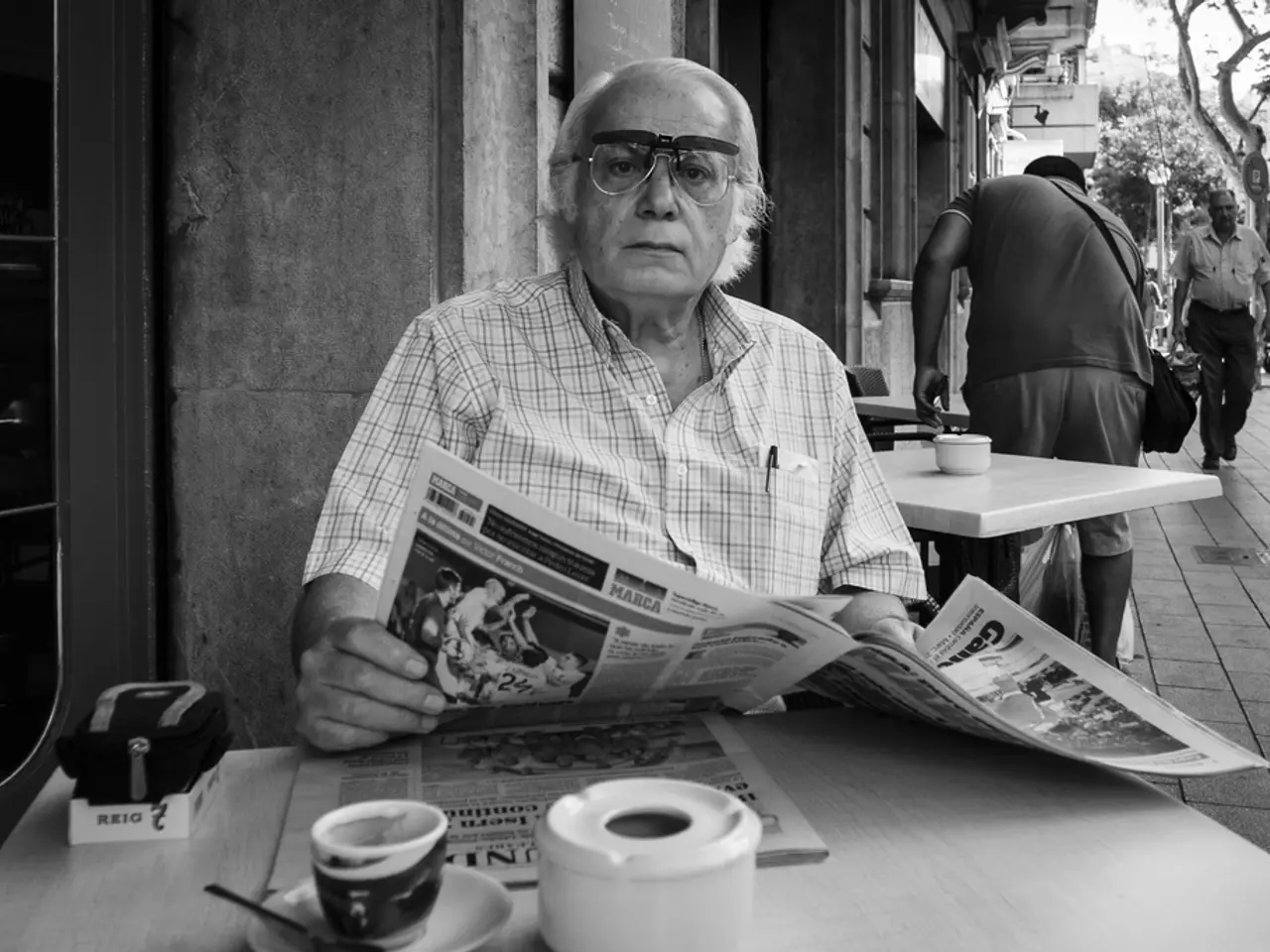Detention review application submitted by Josef Fritzl's legal representative for his release. - Lawyer Petitions for Release of Josef Fritzl Once More
Josef Fritzl’s Release Procedure: Balancing Danger Assessments and Mental Health
Josef Fritzl, the Austrian man convicted of imprisoning his daughter for 24 years and fathering seven children with her, is currently going through the process of conditional release. This complex procedure involves a series of judicial and psychiatric evaluations, focusing on Fritzl's current danger to society, his health status, and his eligibility for parole after serving a life sentence.
Initially, Fritzl was held in a psychiatric detention facility due to the nature of his crimes and mental state. In September 2021, a psychiatric evaluation concluded that he no longer posed a danger, allowing a planned transfer from psychiatric detention to a regular prison[1]. This transfer is significant because it makes Fritzl eligible for parole, with parole eligibility possible from 2023 onwards[1].
However, the decision to move him was contested by prosecutors and went through appeals. In January 2024, an application by Fritzl to be released into a nursing home was rejected by the regional court[1]. In January 2024, the Higher Regional Court approved his move to a regular prison despite reports of his dementia, but prosecutors filed complaints to overturn this, which were dismissed by the court in May 2024, reaffirming his transfer[1].
Legal considerations weigh Fritzl's advanced age, declining health, and the psychiatric assessments stating he no longer poses a danger against the severity of his past crimes. His senility and dementia do not guarantee release but are major factors in evaluating his threat level and suitability for alternative custody settings like regular prison or nursing homes.
Fritzl's lawyer, Astrid Wagner, believes that Fritzl's history should be considered when evaluating his actions. She argues that Fritzl deserves a chance for release because the law applies to everyone equally. Wagner estimates that it could take another one or two years for Fritzl to be released[2].
Meanwhile, Fritzl's mental health continues to deteriorate. He is suffering from progressive dementia, which has led to a "change in personality." His delusions include believing he is popular and that an audience on TV or Donald Trump is waving at him[2]. Despite these challenges, Fritzl is able to perceive normal news and can realistically assess both the war in Ukraine and the Middle East conflict[2].
Wagner hopes that Fritzl's release will provide an opportunity for society to learn about forgiveness and personal development[2]. She believes that Fritzl's harsh upbringing, which included heavy influence from National Socialism, and his mother's alleged mental disturbance and physical abuse, are significant factors in understanding his actions[3].
It is important to note that no definitive unconditional release has been granted as of the latest 2025 information; the process remains contentious and closely monitored by judicial authorities.
[1] Krone, 2021-2024. [2] Krone, 2025. [3] Krone, 2025.
The Commission could be asked to submit a proposal for a directive on the protection of workers in the criminal justice system, particularly those involved in evaluating and assessing the dangerousness of individuals like Josef Fritzl, to minimize the risks related to their potential exposure to ionizing radiation from prolonged working with related materials or prisoners. In the current political climate, incorporating health and safety provisions for these workers might fall under the general-news umbrella, sparking discourse on the importance of ensuring the wellbeing of those working in rehabilitation and justice-related fields.





